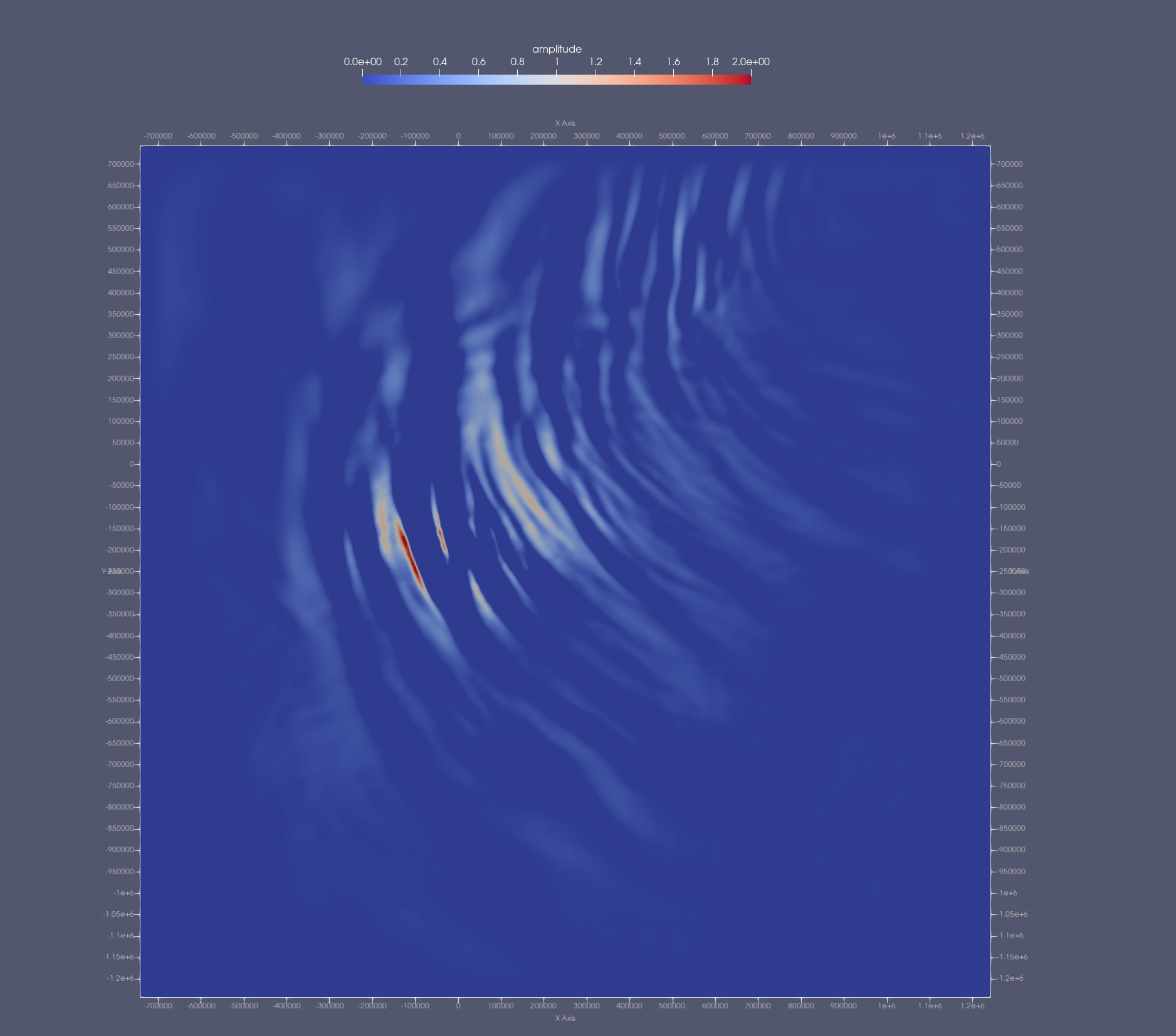New Zealand Simulation
This page describes a numerical simulation over New Zealand further extending the top of the domain from the study
New Zealand Zones.This page describes a numerical simulation of gravity waves over New Zealand's south island. Primary orographic waves break at an altitude of about 80 km, thereby generating secondary waves. The secondary waves are filtered by viscous effects, but the longer wavelengths propagate to altitudes in excess of 400 km.
Computational Domain
The layout of the of the simulation is shown in the figure below. The origin is located at
Mount Cook (43.5950° S, 170.1418° E, 3724 m).
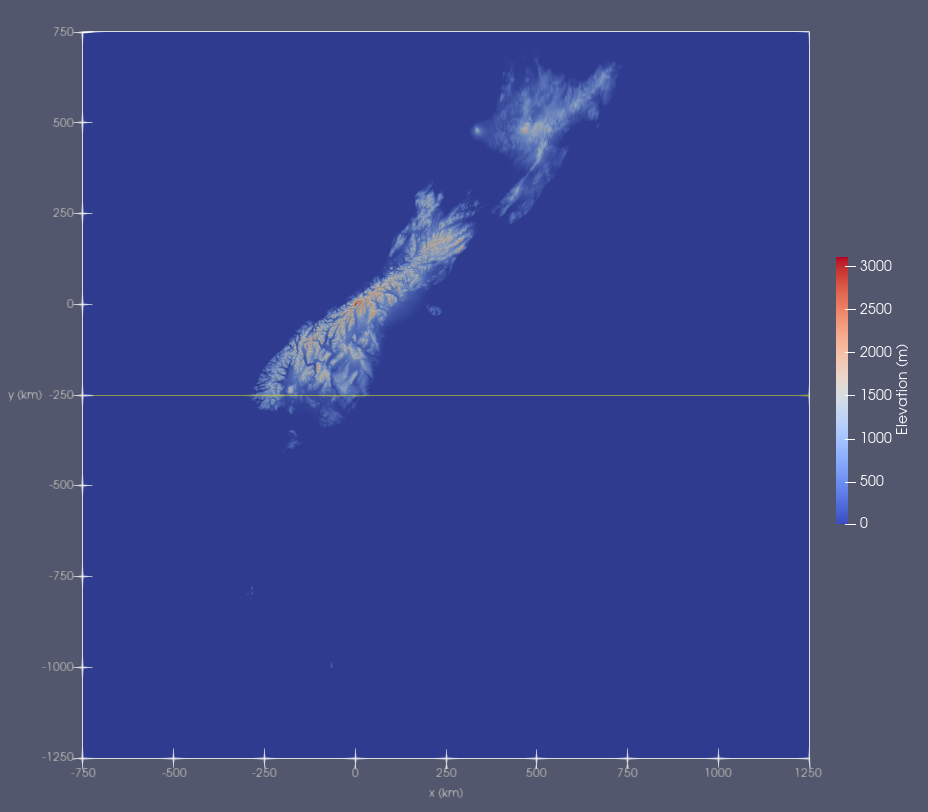
The location of the x-z plane animation is noted above.
The computation grid uses horizontal mesh spacings of 500 m in a region slightly
larger than the south island land mass. The mesh is then stretched gently to
the lateral boundaries. The vertical grid uses uniform spacing of 500 m up to
an altitude of 140 km. Beyond 140 km the mesh is subdivided into four
additional zones where the vertical grid is continuously stretched, but the
horizontal spacings jump by a factor of two across each interface. The
interfaces are located at 140, 200, 260, 320 km, and the horizontal mesh
spacing increases from 500 m in the lowest zone to 1, 2, 4, and 8 km in the
progressively higher zones. The vertical mesh spacing increases continuously
from an altitude of 140 km to the domain top at 440 km. The vertical spacing
at the domain top is 5.6 km. Inviscid wall boundary conditions are used and
the surface whereas characteristic (radiative) conditions are used at the
lateral and top boundaries.
Coarse Grid Comparison
A coarser grid with x-y spacing of 4km and 1km vertical in the unitform regions is used
for comparison. Only a single interface is used such that the grid spacing at the top of
the domain is the same as the full simulation.
Wind Profiles
The background winds and temperature vary in both space and time as predicted by
a NAVGEM reanalysis run. The NAVGEM data is sampled on a 1° by 1° grid and hourly
in time. The plots below show representative profiles for point located at 45.5°S, 170°E.
This maps to (-11.2,-210.8) km in grid space, slightly SSE of Lauder (-36.8,-160.9).
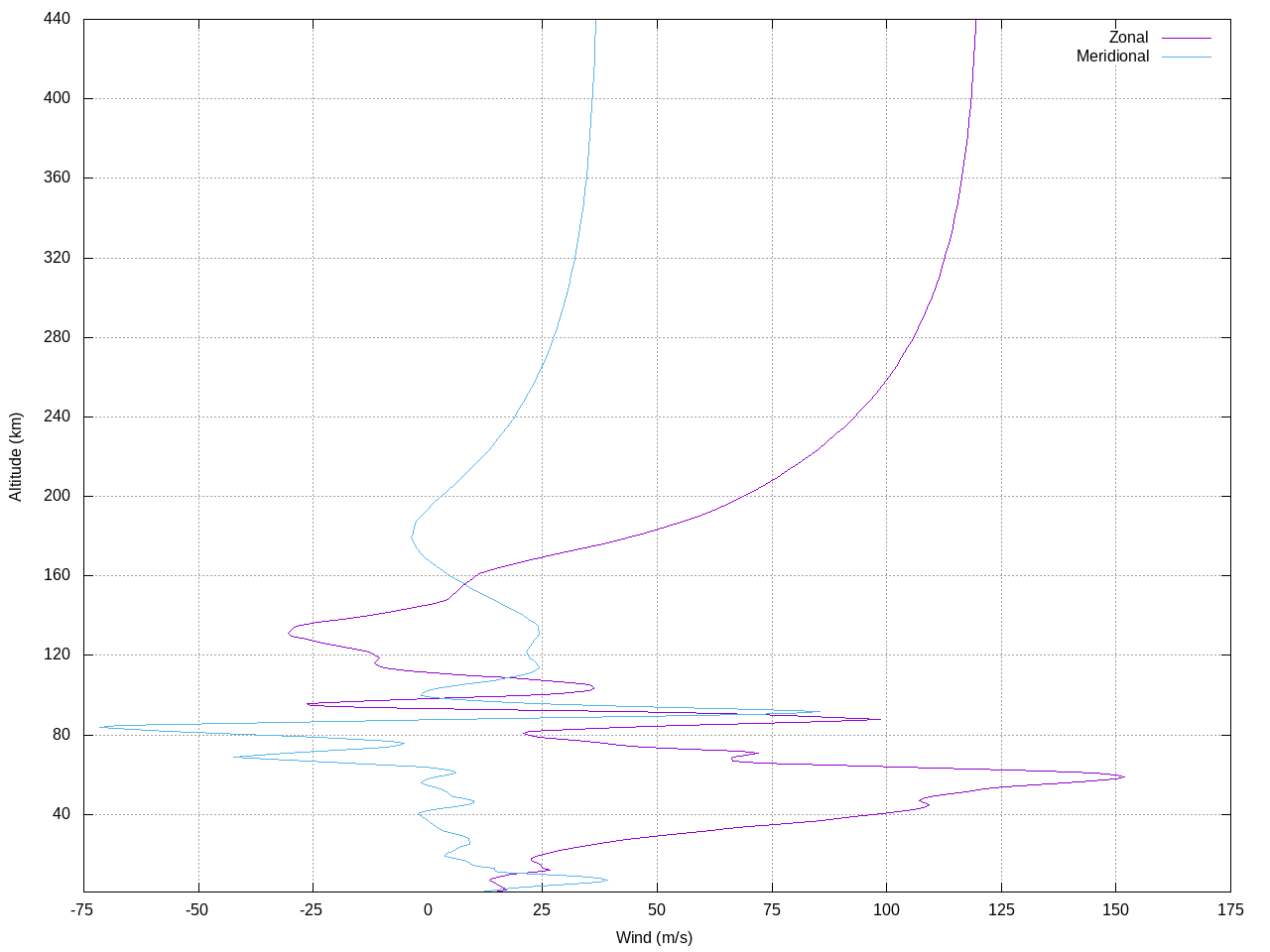
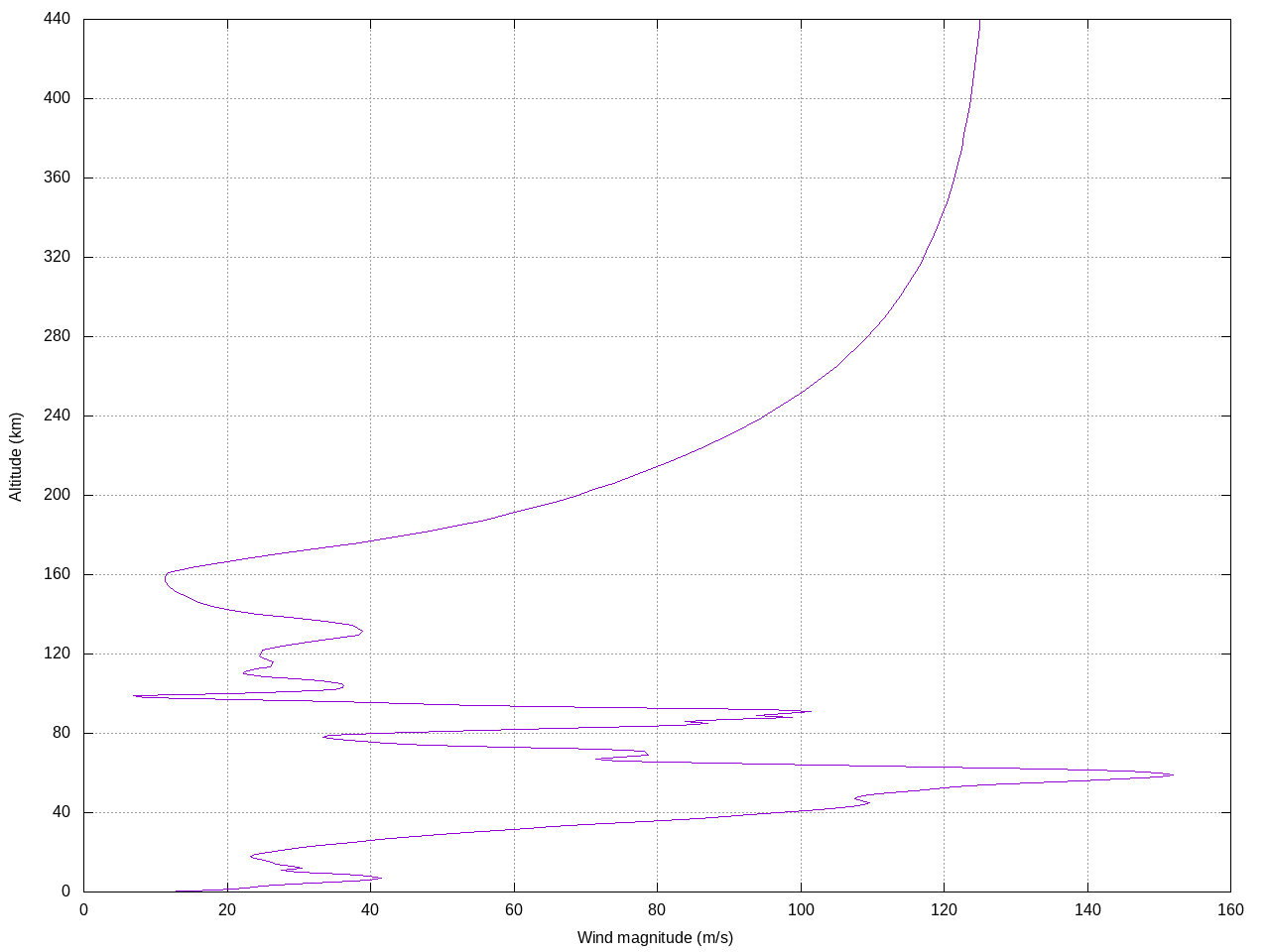
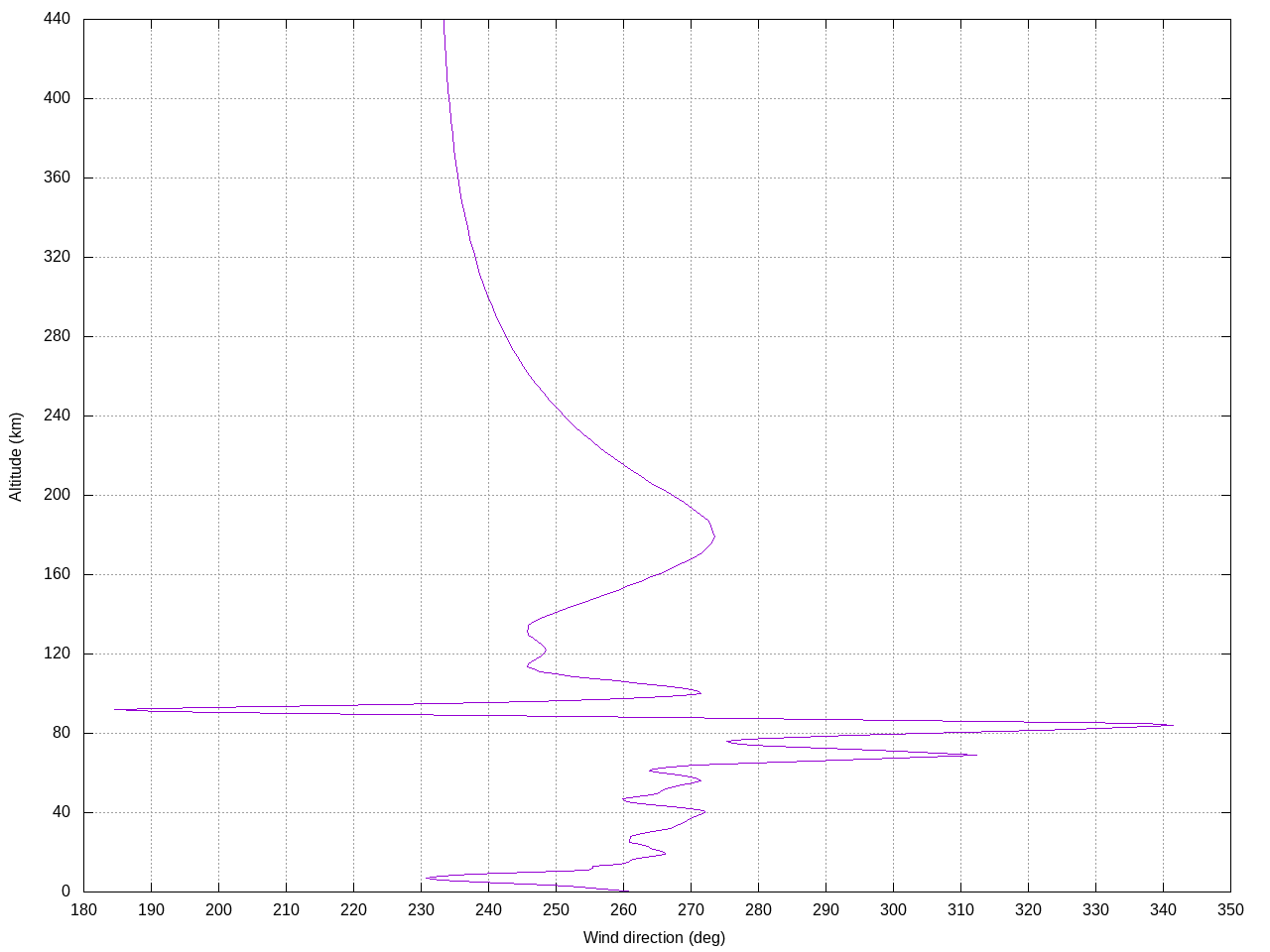
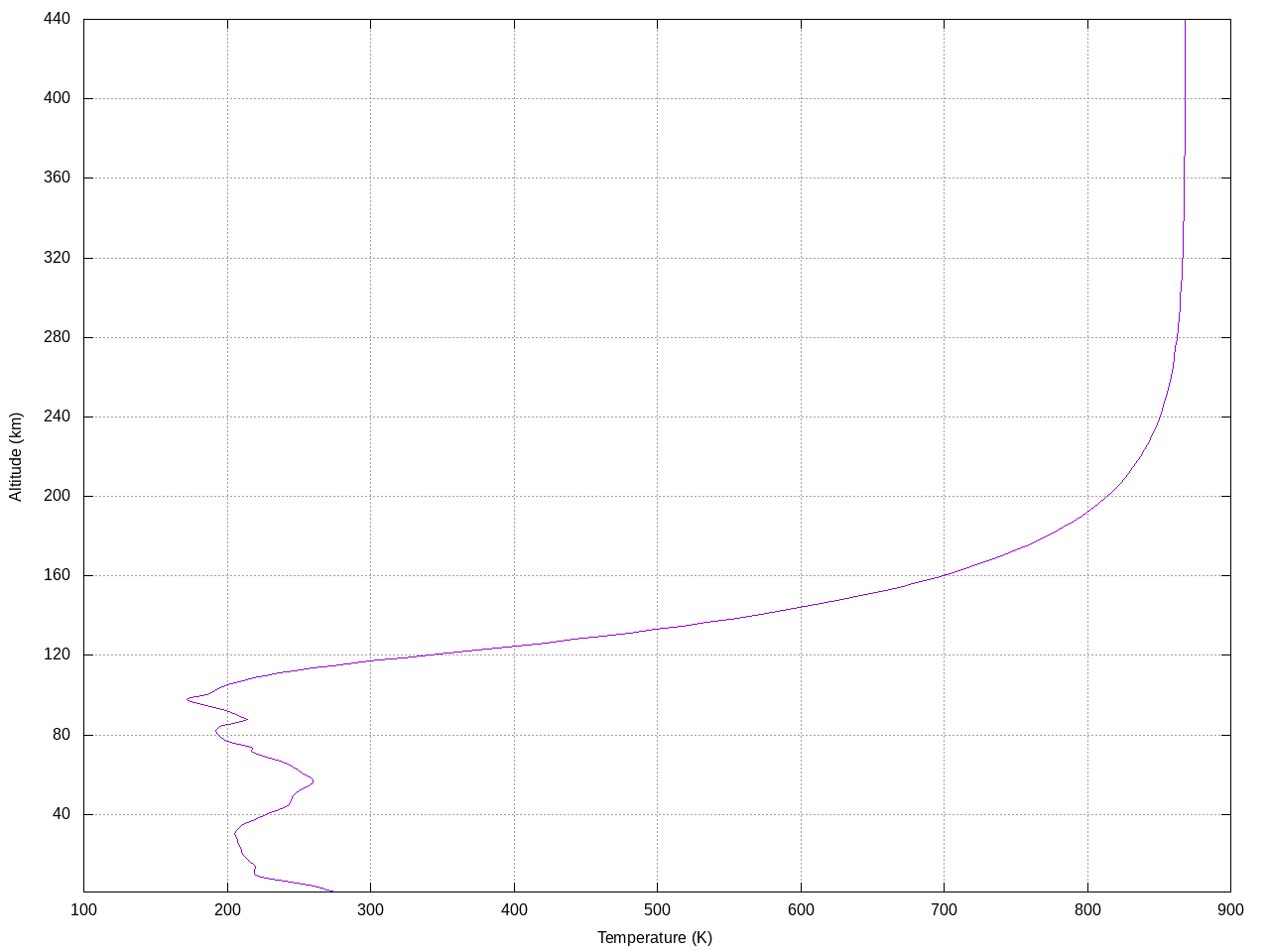
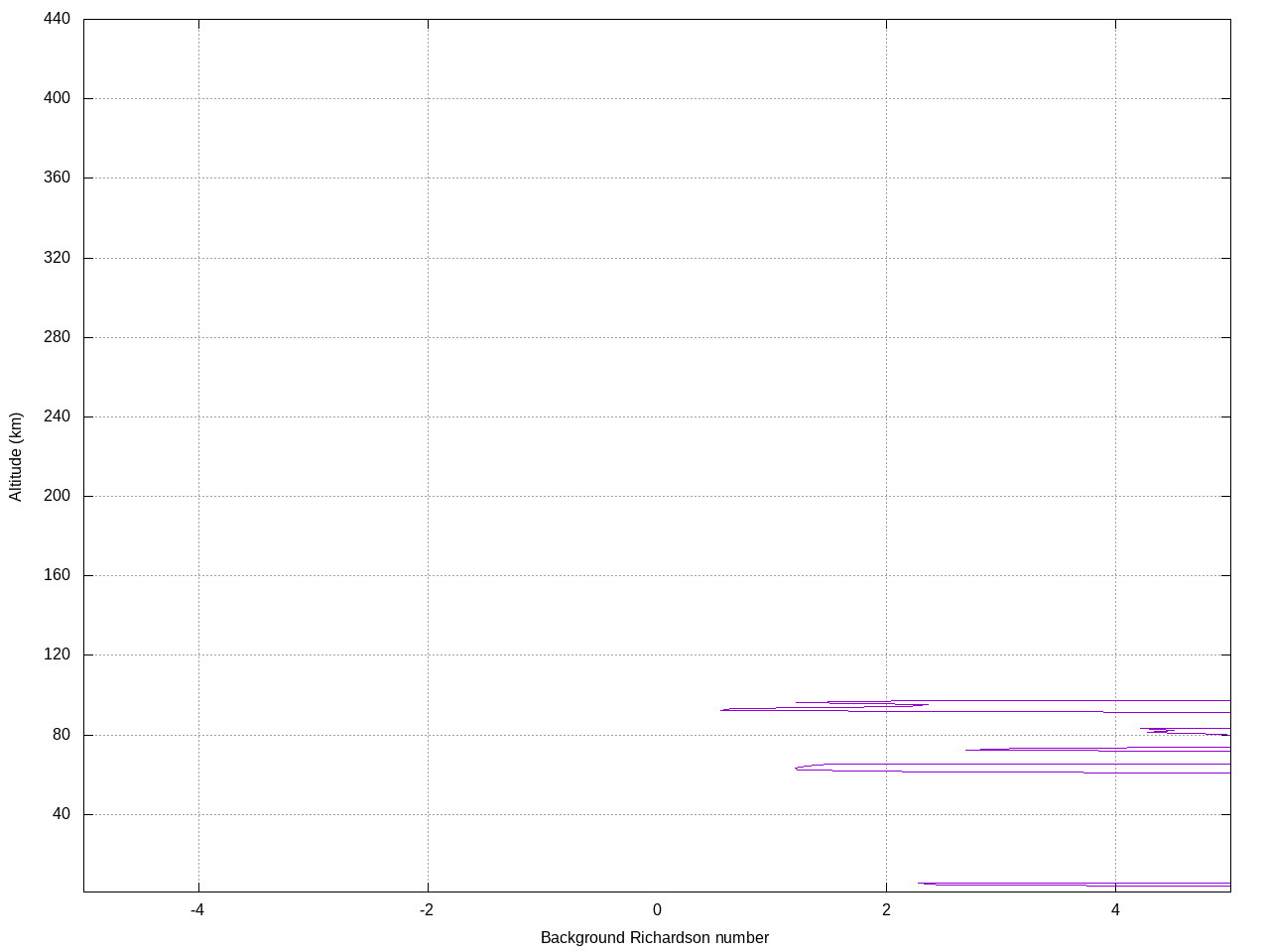
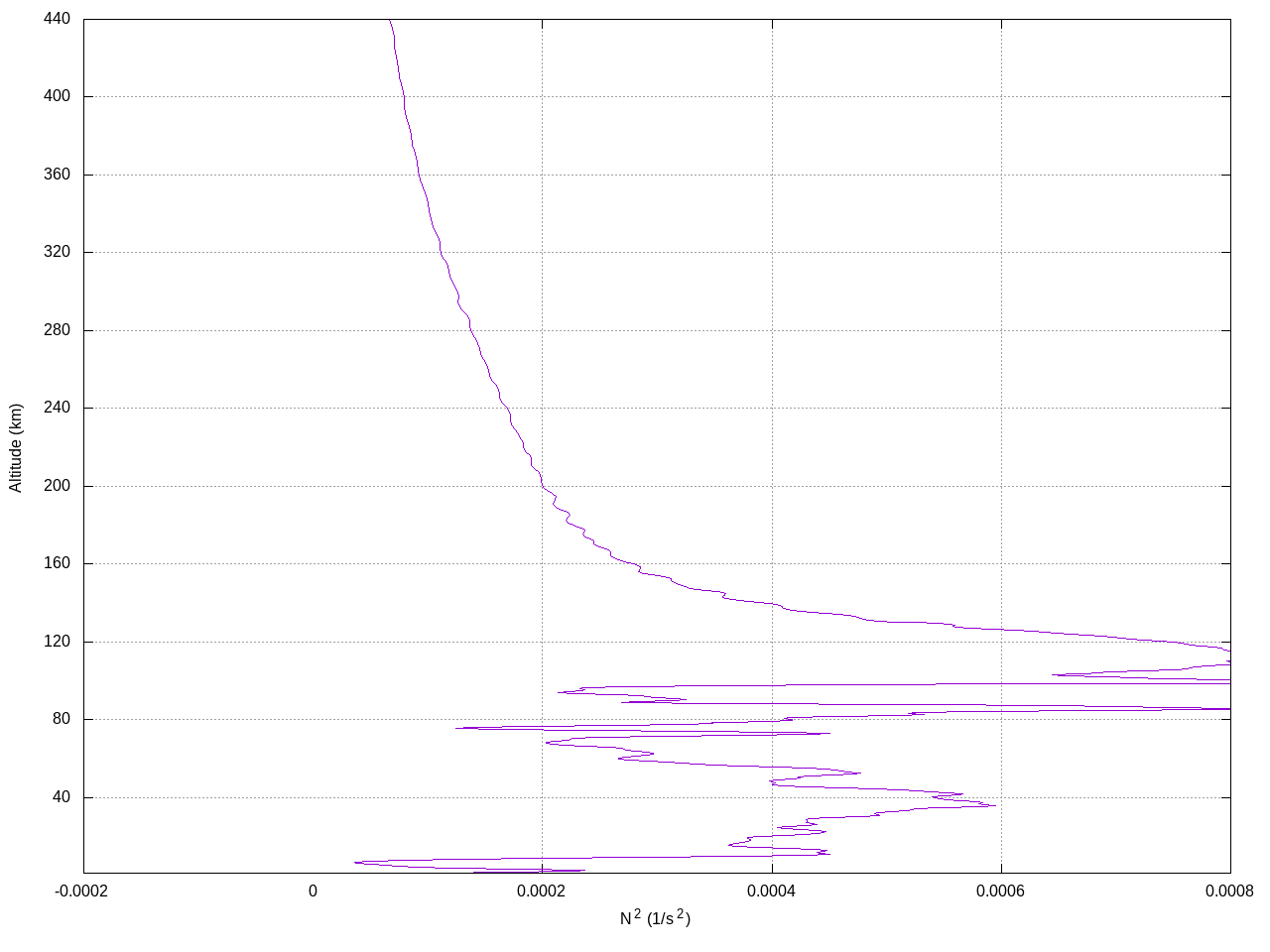
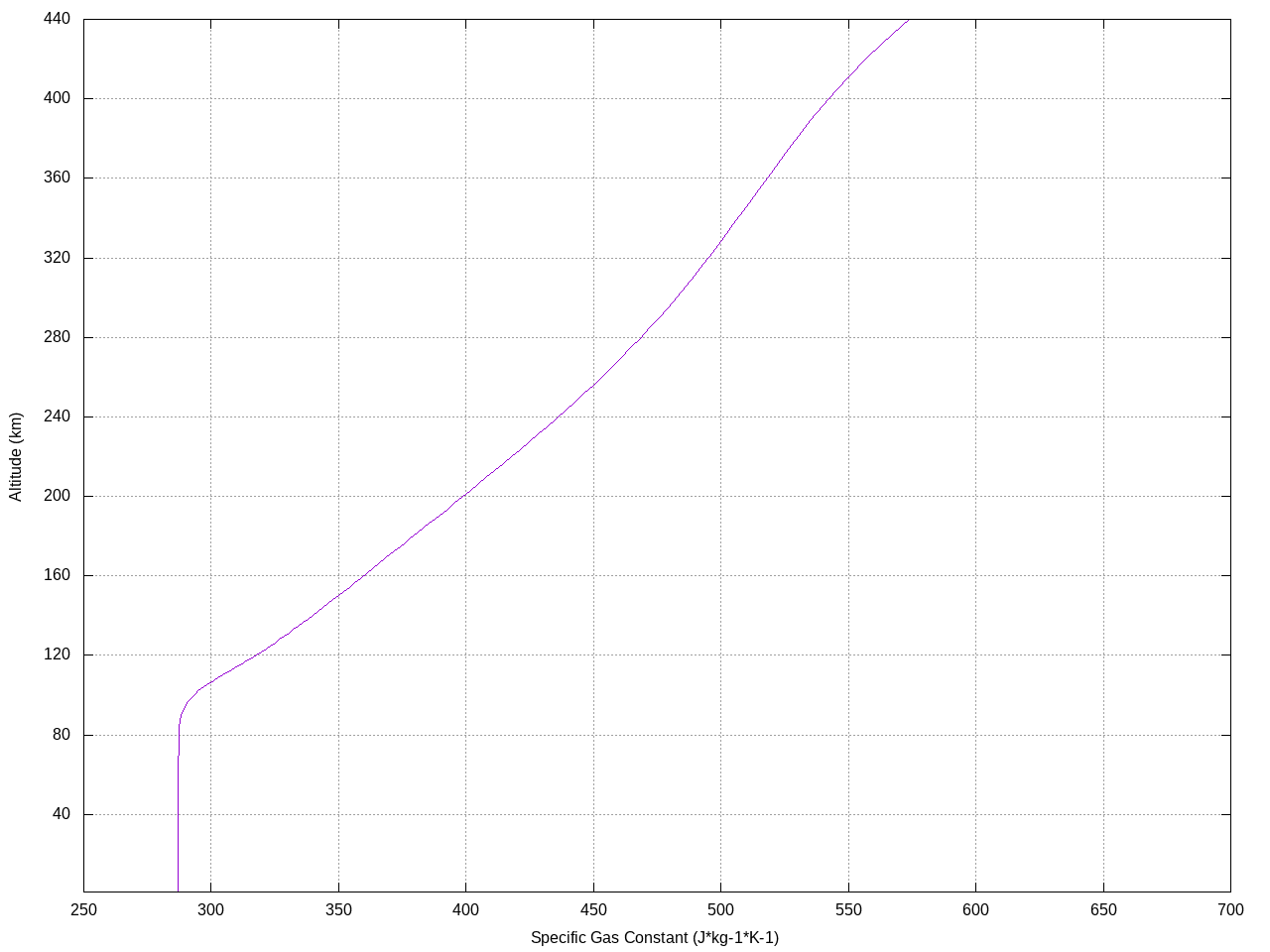
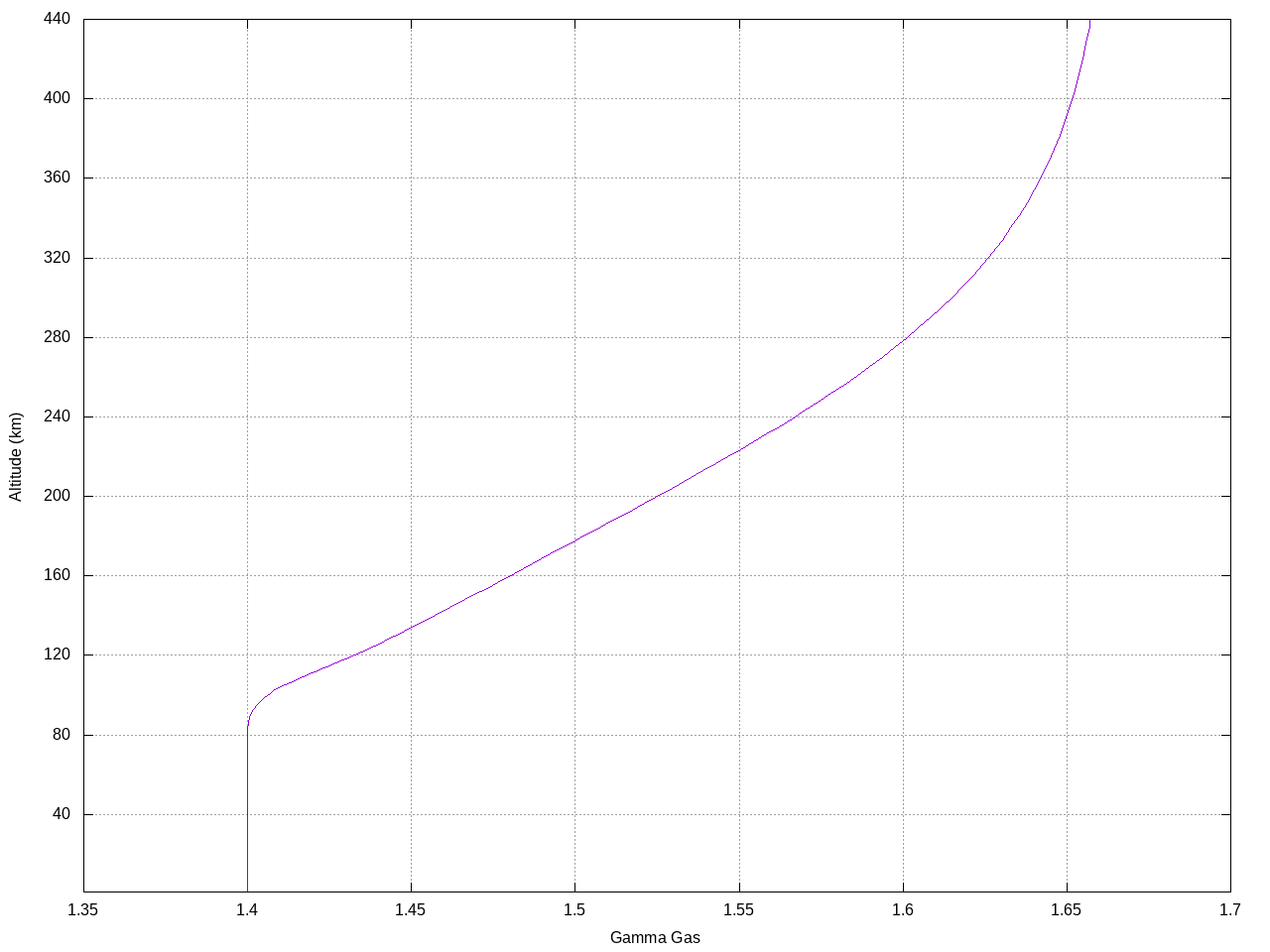
Forcing
In order to minimize starting transients, the mean winds are damped to zero
between the surface and 22 km. Forcing terms are then used to increase the
near-surface winds to the NAVGEM-provided values over a period of two
hours. The forcing terms follow a hyperbolic tangent function in time, which
results in very gentle accelerations near the beginning and end of the forcing
period. The maximum forcing rate is equivalent to that of a linear ramp
with a duration of thirty minutes.
The following animations provide an overview of the wave motion as imaged in meridional-altitude (xz) planes. The solution is rater uninteresting during the wind ramping phase and thus the animations begin two hours into the simulation, which corresponds to 10:00 UTC for the measurements. The primary orographic waves break shortly after the start of the animation and immediately launch a system of strong acoustic waves. As time goes on a mixture of acoustic and gravity waves appear and these propagate all the way to the domain top at an altitude of 440 km.
Coarse Grid Comparison
A coarser grid with x-y spacing of 4km and 1km vertical in the unitform regions is used
for comparison. Only a single interface is used such that the grid spacing at the top of
the domain is the same as the full simulation.
Wind Profiles
The background winds and temperature vary in both space and time as predicted by
a NAVGEM reanalysis run. The NAVGEM data is sampled on a 1° by 1° grid and hourly
in time. The plots below show representative profiles for point located at 45.5°S, 170°E.
This maps to (-11.2,-210.8) km in grid space, slightly SSE of Lauder (-36.8,-160.9).








Forcing
In order to minimize starting transients, the mean winds are damped to zero
between the surface and 22 km. Forcing terms are then used to increase the
near-surface winds to the NAVGEM-provided values over a period of two
hours. The forcing terms follow a hyperbolic tangent function in time, which
results in very gentle accelerations near the beginning and end of the forcing
period. The maximum forcing rate is equivalent to that of a linear ramp
with a duration of thirty minutes.Simulation Results Followed by Coarse Domain
Animation in xz planes
The following animations provide an overview of the wave motion as imaged in meridional-altitude (xz) planes. The solution is rater uninteresting during the wind ramping phase and thus the animations begin two hours into the simulation, which corresponds to 10:00 UTC for the measurements. The primary orographic waves break shortly after the start of the animation and immediately launch a system of strong acoustic waves. As time goes on a mixture of acoustic and gravity waves appear and these propagate all the way to the domain top at an altitude of 440 km.
y = -250 km
y = -150 km
y = -120 km
Results in xy planes
Primary wave breaking can be seen in the following animations on a horizontal
cross-section at an altitude of 90 km. Wave breaking begins at a time of
about 11:00 UTC and then becomes more widespread as time advances. Since the
wave breaking zone extends to lower altitude, secondary waves from the
turbulence at lower altitudes are also visible.
z = 90 km
Secondary waves can be seen in the following animations on a horizontal
cross-section at an altitude of 250 km. The large blast shortly after
10:00 UTC is due to numerical problem that produced a discontinuity in
the solution when the forcing ended. Unfortunately this glitch pollutes
the upper-altitude solution for some time, but clear secondary wave
patterns are visible by about 11:000 UTC. The waves strengthen over time
and are composed of a mixture of both acoustic and gravity wave modes.
z = 250 km
The results look similar on a horizontal plane at an altitude of 320 km.
The main difference is that the waves are somewhat weaker and are larger
in scale.
z = 320 km
Stability Index at 13:00 UTC
y = -150 km
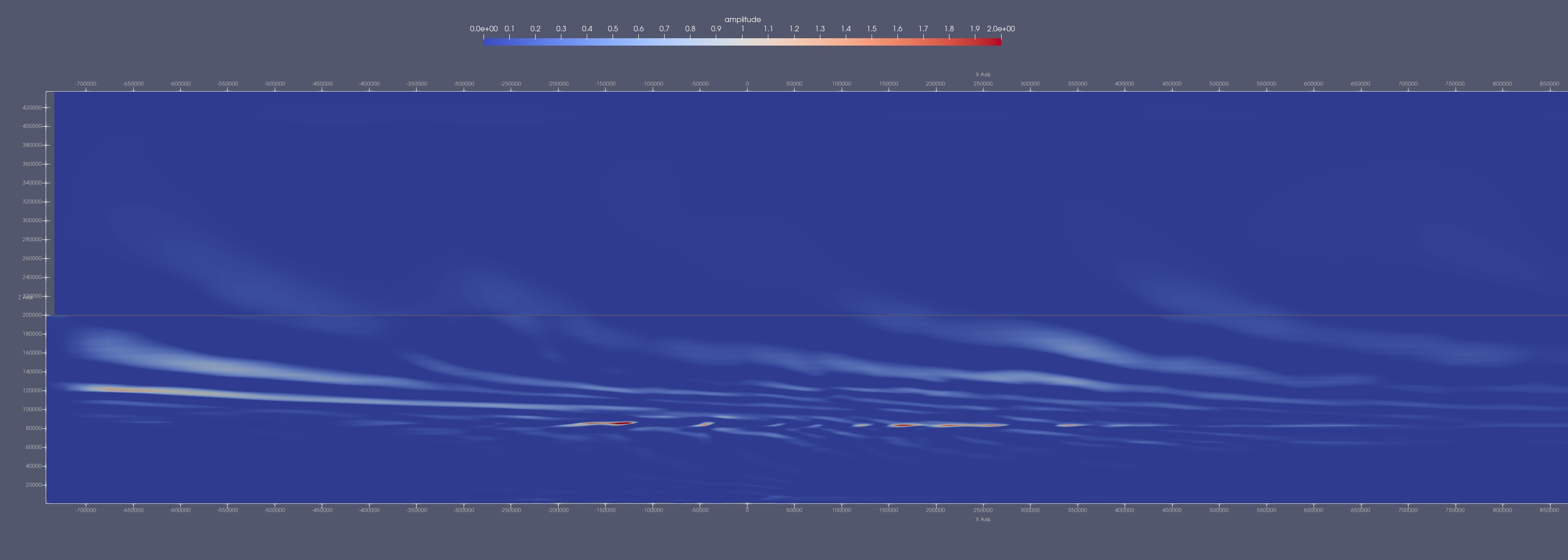
z = 80 km
